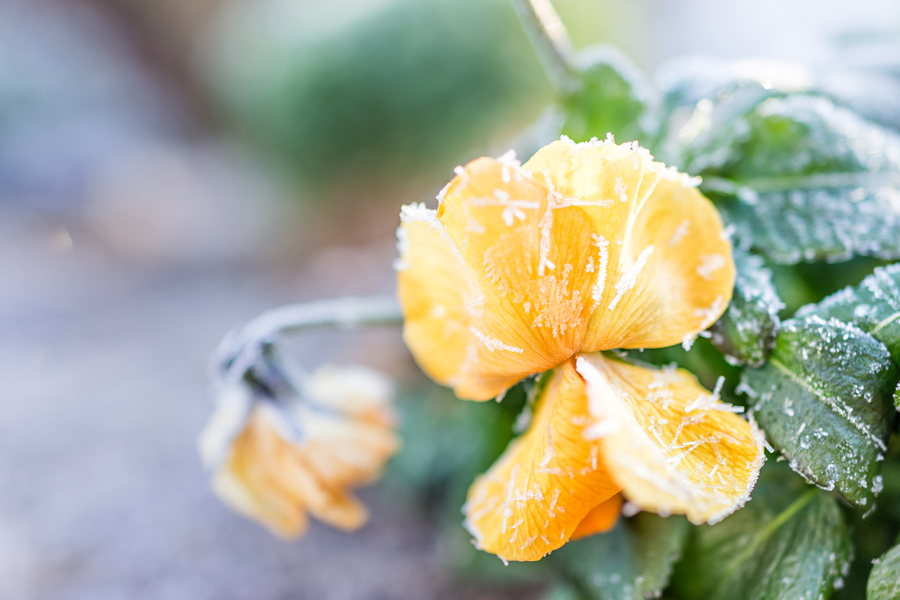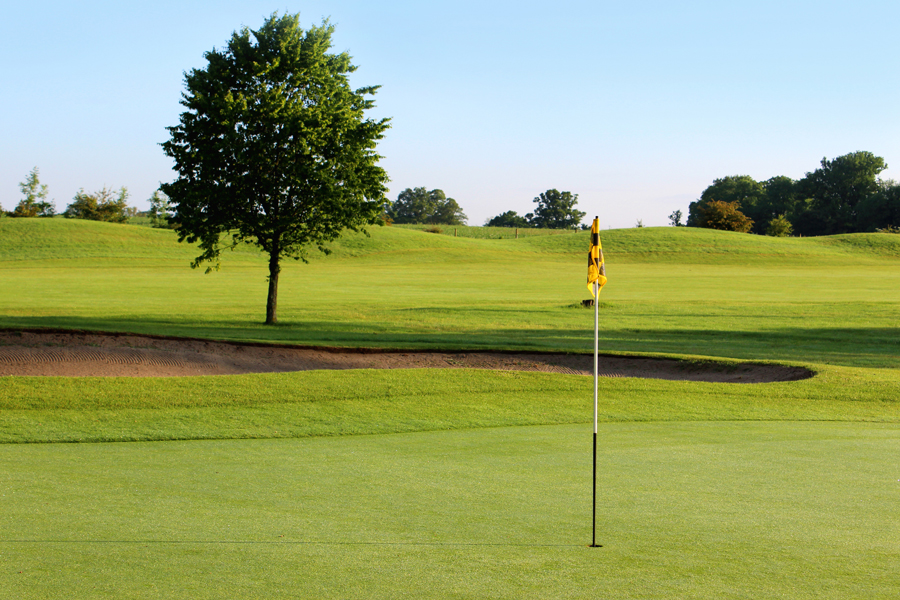Lawn Maintenance
-

Successful lawn care requires a basic understanding of soil properties. A healthy plant starts with healthy soil. Soil is a complex relationship of soil minerals, organic matter, soil inhabiting organisms, and plants along with water and air. Understanding when and how to aerate the soil and understanding what pH is and how it affects plant health is essential for turfgrass health. This publication aims to help homeowners and landscape professionals improve soil fertility through the techniques discussed.
Clint Waltz and Becky Griffin
|
-

This resource helps Georgia residents select the best-adapted grass species and cultivar for an individual site to ensure a thriving lawn.
Clint Waltz
|
-

Cold damage to ornamental plants can be a problem during the winter in the Georgia landscape. Regardless of where you live, recommended practices can maximize the chances that your prized landscape plants will survive the winter.
Bob Westerfield
|
-

A landscape designed, installed and managed according to Xeriscaping’s seven steps uses up to 50% less water than a traditional landscape. And, a well-designed water-wise is just as attractive as a traditional landscape.
Rose Mary Seymour and Sheri Dorn
|
-

In order to maintain a lush, green lawn and productive garden, supplemental water in the form of irrigation is often needed during peak water use periods. Two basic types of irrigation are suitable for the home landscape: sprinkler irrigation and drip (or trickle) irrigation. This publication contains comprehensive information about irrigating lawns and gardens.
Kerry A. Harrison and Wesley Porter
|
-

Grasscycling is the natural recycling of grass clippings by leaving them on the lawn after mowing. Grasscycling saves time, effort and, when done properly, is good for the environment and health of the grass. This publication describes the process of grasscycling, a practical and environmentally responsible way of recycling grass clippings in the landscape.
Clint Waltz and Becky Griffin
|
-

B 911
Bermudagrass in Georgia
Bermudagrass (Cynodon spp.) is an important warm-season, perennial, sod-forming forage grass in Georgia and throughout the Southeast. Bermudagrass is productive from spring until fall and is well-suited for grazing or hay production. Several varieties of bermudagrass are used in Georgia, ranging from common bermudagrass to the high-yielding, good quality hybrid bermudagrasses. The best variety to use depends on your location in the state and the intended use.
R. Dewey Lee, Dennis Hancock, Patrick E McCullough, Glendon H. Harris, and Timothy R. Murphy
|
-

A regular fertilization program is important to maintain healthy, attractive turf and should include applying the correct analysis of fertilizer, using the correct amount, and fertilizing at the proper time. Turfgrasses require a number of nutrients for growth. Three of these—carbon, hydrogen, and oxygen—are rarely lacking because grasses get these elements from carbon dioxide in the atmosphere and water from the soil.
The remaining eighteen essential elements are also obtained from the soil. Nitrogen (N), phosphorus (P), and potassium (K) are needed in the highest concentrations. These major elements are commonly supplemented with fertilizer. The three numbers on the front of fertilizer bags are often called the ”N-P-K” numbers.
In addition to these major nutrients, secondary nutrients and micronutrients are also essential for plant growth. Understanding fertilizer terminology and the different types of nitrogen sources is important when establishing a lawn management plant. Nontraditional or “organic” fertilizers are also an option for homeowners.
Clint Waltz and Becky Griffin
|
-

Do you want a landscape that is beautiful, saves you time, effort and money and uses less water? If you do, a water-wise landscape is for you. Water-wise landscapes are designed, organized, and maintained by practices that use water strategically and wisely. Follow the seven basic steps outlined in this guide to create a beautiful water-wise yard or home garden.
Bodie V. Pennisi, Clint Waltz, and Sheri Dorn
|